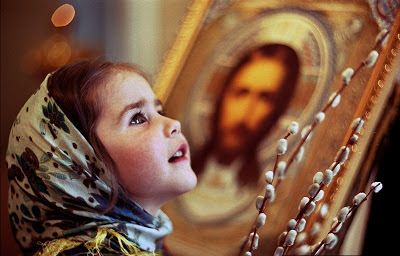Woe to you, scribes and Pharisees, hypocrites! for you tithe mint and dill and cummin, and have neglected the weightier matters of the law, justice and mercy and faith; these you ought to have done, without neglecting the others. You blind guides, straining out a gnat and swallowing a camel! Woe to you, scribes and Pharisees, hypocrites! for you cleanse the outside of the cup and of the plate, but inside they are full of extortion and rapacity. You blind Pharisee! first cleanse the inside of the cup and of the plate, that the outside also may be clean. Woe to you, scribes and Pharisees, hypocrites! for you are like whitewashed tombs, which outwardly appear beautiful, but within they are full of dead men’s bones and all uncleanness. So you also outwardly appear righteous to men, but within you are full of hypocrisy and iniquity. Matt 23.23-28
Heiromartyr Anthimus was born in Nicomedia, and was raised from childhood as a true Christian. ``His body was mortified, his spirit humbled, his envy uprooted, his anger subdued, his sloth banished…. He had love for all and peace with all; he was prudent with all, had zeal for the glory of God and was forthright with all.'' It is no wonder that a man with such virtues was appointed bishop. St. Anthimus governed as Bishop of Nicomedia during the cruel persecution of Christians under the villainous Emperors Diocletian and Maximian. Streams of Christian blood were shed, especially in Nicomedia. One year, on the Feast of Christ's Nativity, twenty thousand martyrs were burned to death in one church. This took place during the time of Anthimus's episcopacy. Even so, the persecution did not end with this, but continued, and many Christians were cast into prison and kept there for torture and death. St. Anthimus withdrew to the village of Semana, not because he was fleeing from death, but in order to continue encouraging his flock in the feat of martyrdom, so that no one would fall away out of fear. One of his letters to the Christians in prison was intercepted and turned over to Emperor Maximian. The emperor dispatched twenty soldiers to find Anthimus and bring him to him. The gray-haired and clairvoyant elder came out to meet the soldiers, brought them to his house, and treated them as guests-and only then revealed that he was Anthimus, whom they were seeking. The soldiers, astonished by Anthimus's kindness, suggested that he hide, saying they would tell the emperor that they could not find him. But Anthimus replied that he could not let himself transgress God's commandment against falsehood to save his life, and he went with the soldiers. Along the way, all the soldiers came to believe in Christ and were baptized by Anthimus. The emperor had Anthimus harshly tortured for a long time, and then had him beheaded with an axe. He glorified the Lord and went to his rest at the beginning of the fourth century.
Prayer For Our Enemies
Lord Jesus Christ, in Your great mercy You prayed for the forgiveness of those who crucified You, and You taught us to love our enemies and to pray for those who persecute us. Lord, I pray that You forgive those who treat me unjustly and speak out against me, and that You bless them and guide them according to Your will. Take away any bitterness I may have in my heart against them. Lord, may Your forgiveness, goodness and love be revealed in all of us, to Your praise and glory. Amen












